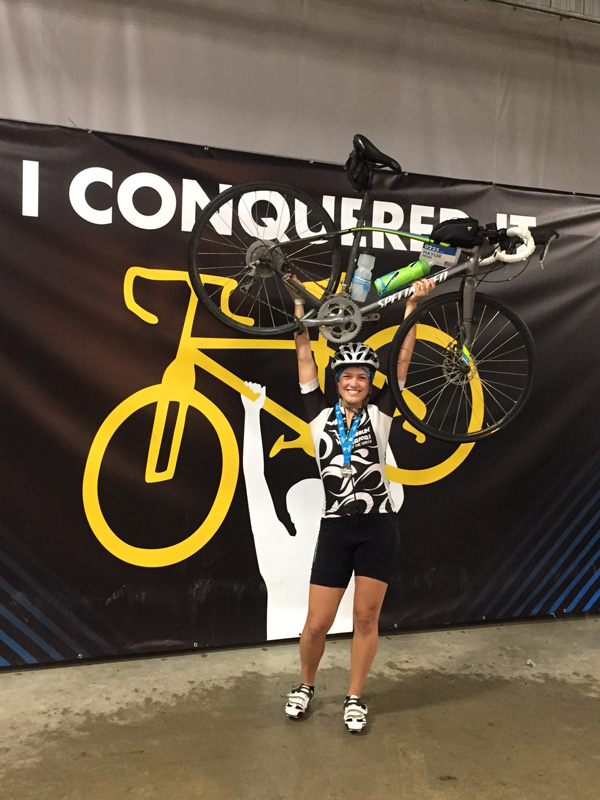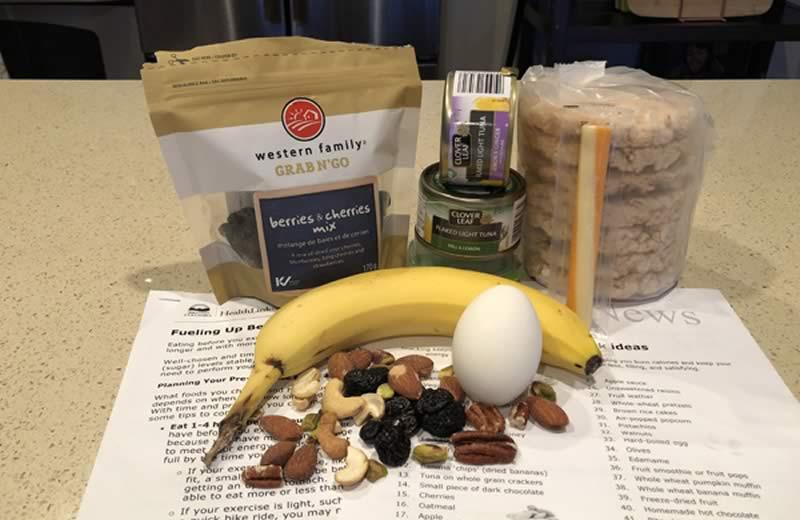Most adults will agree: sometimes “adulting” is hard. Day-to-day tasks like walking, running, and eating can be hard to do! During the summer, I was feeling tired all the time which wasn’t the norm for me. Worried something was going on, I went to see my doctor. She recommended I see a registered dietitian (RD). Surprised and a little bit embarrassed, I wondered, was it that simple? Had I failed the most basic of tasks — feeding myself properly?
Learning how to eat — again
So off I went to see a dietitian for the first time. I had no idea what to expect but I figured that it couldn’t hurt. I knew that speaking to a dietitian is free (thanks Canadian health care!) and that they are highly educated on all things nutrition.
My appointment day arrived and I found myself fidgeting in the waiting room. My dietitian came out to greet me and as soon as I walked into her office, all my nerves disappeared. She was warm and non-judgmental and made me feel like she was really listening to my concerns. This helped ease my discomfort. It felt strange to discuss my eating habits and patterns to a total stranger. I’d never realized how personal my eating choices felt.
My experience seeing a registered dietitian
To start, we went through an extensive list of questions, some slightly mortifying. She asked about bodily functions, including the process of food exiting one’s body. I cringed but answered as best I could. She made talking about poop seem like the most normal thing in the world. I laughed later just thinking about it.
She took a moment to analyze my answers jotting down a few notes here and there. Next she asked what a typical day of eating looked like for me. For the rest of my visit, we discussed some of my eating challenges and some ways to overcome them.

What I learned
The biggest take away for me was that I wasn’t eating frequently enough. I was letting my body go into starvation mode between meals. I also learned I wasn’t eating the right things to feel full. We talked about protein and carbohydrate balanced snacks and meals. These suggestions seemed obvious but clearly I wasn’t identifying them myself. Having an outsider’s perspective helped me understand my eating patterns better. Plus, my dietitian gave me advice that was tailored to my needs. For these reasons, I found the visit very helpful!
Here are my five reasons why you should consider seeing a registered dietitian:
- Seeing a registered dietitian gives you free, evidenced-based advice on nutrition. In the era of information overload, I feel like I’m constantly bombarded on social media with harmful diet culture messages. It’s hard to know who to trust! A dietitian can help set the record straight with evidence-based nutrition advice.
- Registered dietitians are highly educated and regulated. The RD designation is protected and regulated in Canada. In BC, they’re regulated under the College of Dietitians of British Columbia. For this reason, you shouldn’t trust just anybody on nutrition advice. RD requirements include the following: completing a four year undergraduate degree, doing an approved internship, and successfully writing a registration exam. Plus each year, RDs must complete continuing education that is recorded and submitted to the College. Talk about thorough!
- Registered dietitians personalize solutions for you. Doctors are amazing champions when it comes to your health but the reality is they’re limited in how much time they can spend with you one-on-one. An RD can spend much more time with you than your family doctor can in a ten minute visit. This means they can look into your case more thoroughly and offer solutions that are personalized to you and your health needs. I’m thankful my doctor recognized this and referred me.
- Registered dietitians look at nutrition holistically. One thing that surprised me during my RD visit was the scope of questions. We talked about things I didn’t expect to talk about – like my physical activity and bodily functions. I didn’t realize it, but all these things are connected. She never said “thou shall eat this and not eat that,” but instead helped me identify foods I enjoyed and how to enjoy more of them in a way that meets my needs.
- Registered dietitians can give you great resources. Another helpful thing I took away from my visit was some great handouts on snacking and fueling before and after exercise. RDs are trained to look at the latest research with a critical eye. In other words, they can help you find good sources of information for your nutrition needs.
Do you think you or your patients could benefit from talking to an RD?
- There are dietitians in various communities across Northern Health. A referral may be required. Talk to your health care provider to learn more.
- BC residents can also access Dietitian Services at HealthLink BC, by calling 8-1-1 (or 604-215-8110 in some areas) and asking to speak with a dietitian.














Comments